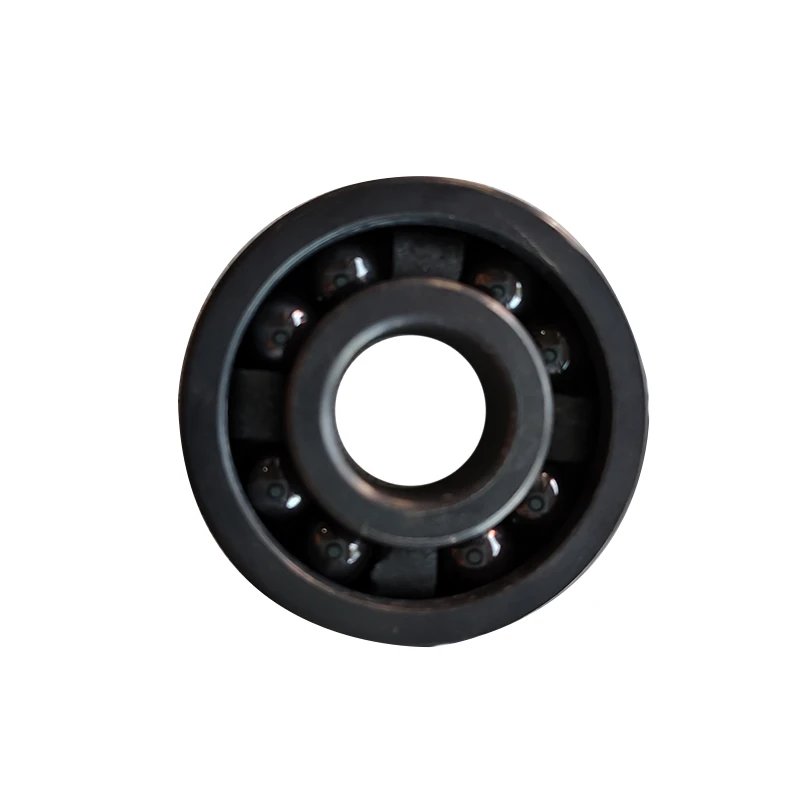Nov . 09, 2024 06:59 Back to list
Custom Ball Bearings for Enhanced Motor Performance and Durability in Various Applications
Custom Ball Bearings in Motors Enhancing Performance and Efficiency
In the realm of machinery and engineering, a myriad of components work harmoniously to deliver efficiency and performance. Among these, ball bearings play a critical role, particularly in motors. Custom ball bearings are increasingly becoming indispensable in various applications, offering tailored solutions that maximize the performance of electric motors.
Understanding Ball Bearings
Ball bearings are mechanical devices that reduce friction between moving parts. They consist of an inner and outer race, separated by balls, which allow for smooth rotation. In motors, the efficiency of these bearings can significantly influence the overall performance and longevity of the unit. Standard ball bearings, while effective, often cannot meet the specific needs of varied applications, which is where custom ball bearings come into play.
The Importance of Customization
Custom ball bearings are designed to meet specific requirements that standard versions may not satisfy. Factors such as load capacity, speed, temperature tolerance, and environmental conditions can heavily influence the performance of a motor. Customization allows for fine-tuning these factors to enhance the operation of the device.
One significant advantage of custom ball bearings is their capability to withstand higher loads and speeds. For instance, in high-performance motors used in aerospace or automotive applications, the demands on bearings are substantial. Custom-designed bearings can be engineered to handle these demanding conditions, ensuring reliability and efficiency.
Material Selection and Design
The materials used in making custom ball bearings can also contribute significantly to their performance. Traditional steel bearings are often replaced with advanced materials such as ceramic or hybrid composites in high-speed or high-temperature applications. These materials provide lower friction, reduced weight, and better durability, which in turn leads to improved motor efficiency.
custom ball bearing in motor

Custom ball bearings can also be designed with unique geometries, such as varying the size of the balls or modifying the raceway profiles. These design changes can lead to decreased friction and increased load-carrying capacity. Engineers can leverage advanced computer-aided design (CAD) software to simulate performance and optimize the bearing design before production, ensuring that the final product is tailored precisely to the motor's requirements.
Benefits of Using Custom Ball Bearings
Utilizing custom ball bearings in motors offers several notable benefits
1. Improved Efficiency With reduced friction and optimized designs, custom ball bearings can improve the efficiency of motors, leading to lower energy consumption and longer operational life.
2. Extended Lifespan By meeting specific load and speed requirements, these bearings can operate longer without failure, minimizing maintenance costs and downtime.
3. Enhanced Performance Custom bearings can be designed to support higher operational speeds and loads, making them ideal for high-performance applications.
4. Resistance to Environmental Factors In applications where motors are exposed to harsh conditions, such as extreme temperatures or corrosive substances, custom ball bearings can be engineered to resist these factors, ensuring reliability.
Conclusion
The evolution of custom ball bearings represents a significant stride in engineering, particularly regarding motor performance. By tailoring bearings to meet the specific needs of various applications, manufacturers can enhance efficiency, longevity, and reliability. As industries continue to demand higher performance and energy efficiency, the use of custom ball bearings will undoubtedly play an integral role in the advancement of motor technology. The investment in developing such specialized components is justified by the substantial improvements they bring, marking a concrete step toward the future of mechanical design and engineering.
Latest news
-
25MM 2 BOLT UCFLX05-14 Flange bearing unit( oval)
NewsMar.07,2025
-
4 bolt UCF 200 series Pillow block bearings
NewsMar.07,2025
-
25MM 2 BOLT UCFLX05-14 Flange bearing unit( oval)
NewsMar.07,2025
-
UCF216-50 4-Bolt Flange Housing Square Bearing
NewsMar.07,2025
-
25MM 2 BOLT UCFLX05-14 Flange bearing unit( oval)
NewsMar.07,2025
-
spherical roller bearing material exporter
NewsMar.07,2025





